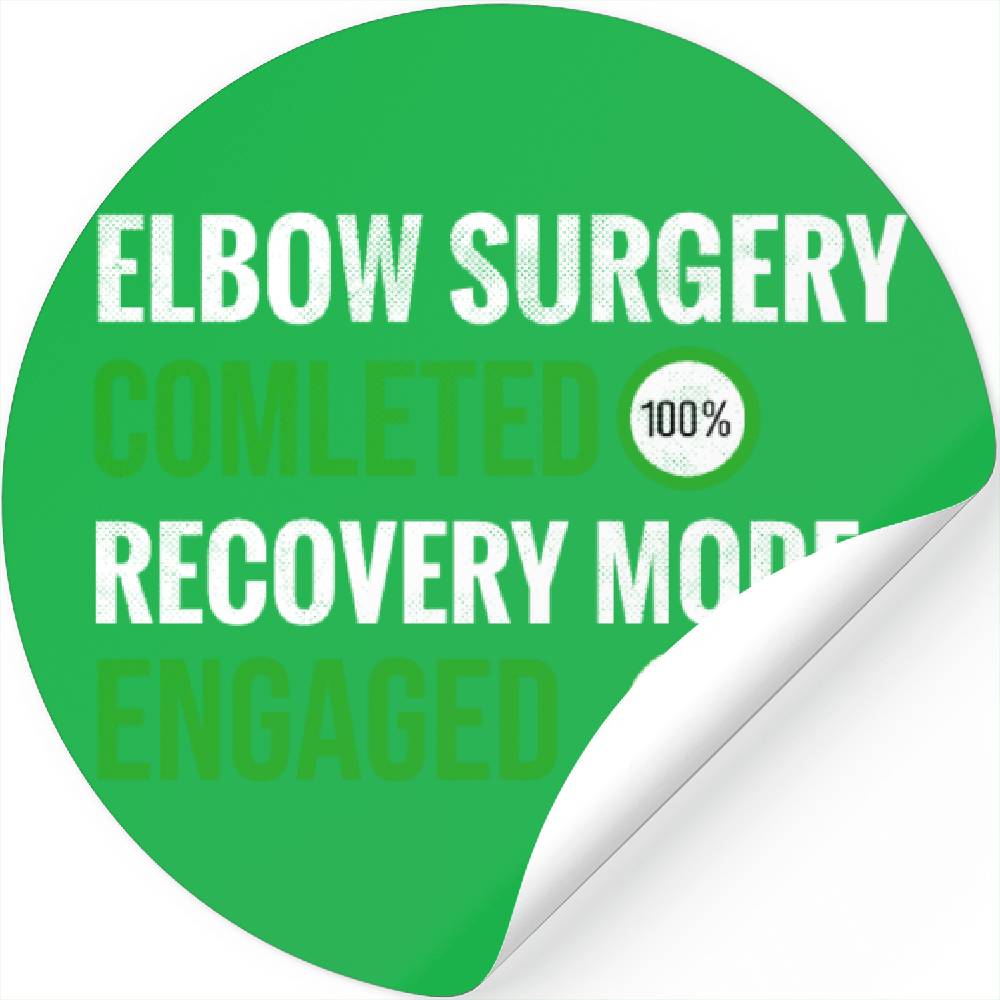Elbow Surgery Was Yesterday: A Comprehensive Guide To Recovery And Beyond
Apr 01 2025
Elbow surgery was yesterday, but the road to recovery starts today. Whether you're an athlete, a professional, or someone dealing with chronic pain, understanding the nuances of elbow surgery and its aftermath is essential. This article dives deep into everything you need to know about elbow surgery, recovery, and how to regain full function.
Elbow surgery has become a common procedure for individuals suffering from injuries, arthritis, or other medical conditions affecting the elbow joint. While the surgery itself marks the beginning of a new chapter, the days and weeks following it are equally important. Knowing what to expect and how to manage recovery can significantly improve outcomes.
This guide is designed to provide expert insights, authoritative advice, and trustworthy information to help you navigate through the recovery process. Let's explore everything from pre-surgery preparations to post-surgery rehabilitation and beyond.
Read also:Deekila Aniket Viral Video The Story Behind The Sensation
Table of Contents
- Introduction to Elbow Surgery
- Types of Elbow Surgery
- Preparing for Elbow Surgery
- What Happens on the Day of Surgery?
- Elbow Surgery Recovery Timeline
- Rehabilitation and Physical Therapy
- Pain Management After Surgery
- Possible Complications
- Lifestyle Adjustments Post-Surgery
- Conclusion: Moving Forward
Introduction to Elbow Surgery
Elbow surgery is a medical intervention designed to treat various conditions affecting the elbow joint. Whether it's due to trauma, overuse, or degenerative diseases, surgery can restore function and alleviate pain. Understanding the basics of elbow surgery is crucial for anyone considering the procedure.
According to the American Academy of Orthopaedic Surgeons (AAOS), elbow surgeries are performed on thousands of patients each year. The success rate of these surgeries depends largely on the type of procedure and the patient's commitment to recovery.
Why Is Elbow Surgery Necessary?
Elbow surgery becomes necessary when non-surgical treatments fail to provide relief. Common reasons include:
- Torn ligaments or tendons
- Arthritis
- Fractures
- Chronic pain
Types of Elbow Surgery
There are several types of elbow surgeries, each addressing specific issues. Below is a breakdown of the most common procedures:
Arthroscopic Surgery
Arthroscopic surgery is a minimally invasive procedure used to diagnose and treat problems inside the elbow joint. It involves inserting a small camera and surgical instruments through tiny incisions.
Open Surgery
Open surgery is more invasive and involves a larger incision. It's typically used for complex cases such as severe fractures or joint replacements.
Read also:Brookstone Dual Definer The Ultimate Tool For Precise And Versatile Shaving
Ligament Reconstruction
Ligament reconstruction, commonly known as Tommy John surgery, is often performed on athletes to repair torn ligaments in the elbow.
Preparing for Elbow Surgery
Preparation is key to ensuring a successful surgery and smooth recovery. Here are some steps you can take:
Consult Your Doctor
Before the surgery, consult with your orthopedic surgeon to discuss your medical history, current medications, and any concerns you may have.
Undergo Pre-Operative Tests
Pre-operative tests such as blood work and imaging studies are essential to assess your overall health and readiness for surgery.
What Happens on the Day of Surgery?
The day of surgery can be nerve-wracking, but knowing what to expect can help ease anxiety. Here's what typically happens:
- Check-in at the hospital or surgical center
- Meet with the surgical team
- Receive anesthesia
- Undergo the procedure
Elbow Surgery Recovery Timeline
Recovery from elbow surgery varies depending on the type of procedure and the individual's health. Below is a general timeline:
Week 1-2
During the first two weeks, focus on rest and pain management. Your doctor may prescribe pain medication and recommend keeping the elbow elevated to reduce swelling.
Week 3-6
By this stage, you should start gentle range-of-motion exercises. Follow your physical therapist's instructions carefully to avoid re-injury.
Week 7-12
As you approach the three-month mark, you'll likely notice significant improvements in strength and flexibility. Continue with your rehabilitation program to ensure a full recovery.
Rehabilitation and Physical Therapy
Rehabilitation is a critical component of the recovery process. Physical therapy helps restore strength, flexibility, and function to the elbow joint.
Key Components of Physical Therapy
- Stretching exercises
- Strength training
- Manual therapy
- Functional training
Pain Management After Surgery
Pain management is essential during the recovery period. Your doctor may recommend a combination of medications, ice therapy, and other techniques to manage discomfort.
Non-Medication Pain Relief Options
Consider these non-medication options for pain relief:
- Heat and cold therapy
- Massage
- Acupuncture
Possible Complications
While elbow surgery is generally safe, complications can occur. Common issues include infection, nerve damage, and stiffness. If you experience any unusual symptoms, contact your doctor immediately.
Lifestyle Adjustments Post-Surgery
Post-surgery, you may need to make lifestyle adjustments to accommodate your healing process. These adjustments can include:
Workplace Modifications
If your job involves repetitive elbow movements, discuss modifications with your employer to prevent re-injury.
Exercise Routine
Gradually incorporate low-impact exercises into your routine, focusing on activities that don't strain the elbow joint.
Conclusion: Moving Forward
Elbow surgery was yesterday, but the journey to recovery continues. By following your doctor's advice, committing to rehabilitation, and making necessary lifestyle adjustments, you can regain full function and improve your quality of life.
We encourage you to share this article with others who may benefit from it. Leave a comment below to share your experiences or ask questions. For more informative content, explore our other articles on health and wellness.
Remember, your health is your most valuable asset. Take care of it, and it will take care of you.


